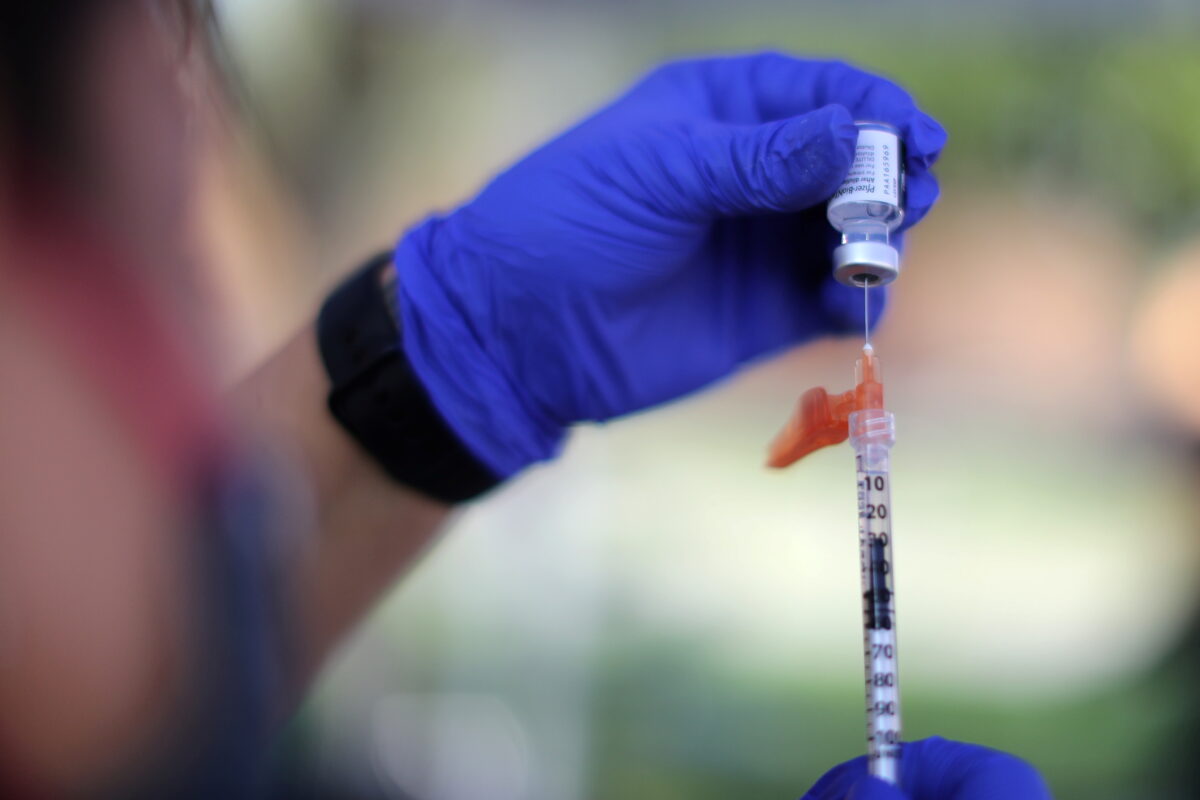
Real-world data from Israel linked Pfizer’s COVID-19 vaccine to a high risk of heart inflammation, researchers said this week.
Israeli scientists found that vaccination would likely cause myocarditis or inflammation of the heart in one to five people per 100,000 who would not otherwise have suffered from the disease.
However, they also said that obtaining COVID-19 was associated with an increased risk, with 11 inflammatory events out of every 100 attributed to the disease.
Most cases of post-vaccination heart inflammation were in young men. The 21 people who had myocarditis in the vaccinated group had a mean age of 25 years and 90.9% were men.
“We estimated that the BNT162b2 vaccine resulted in an increased incidence of some adverse events over a 42-day follow-up period. Although most of these events were mild, some of them, such as myocarditis, could be potentially serious, ”they said in reference to the Pfizer-BioNTech vaccine.
“However, our results indicate that SARS-CoV-2 infection is a very strong risk factor for myocarditis, and it also substantially increases the risk of multiple other serious adverse events. These results help to shed light. to the short- and medium-term risks of the vaccine and place them in the clinical context. Additional studies will be needed to estimate the potential for long-term adverse events. “
The research looked at adverse events reported among 884,828 vaccinated people and an equal number of people who did not receive a vaccine, as well as a cohort of more than 240,000 people who contracted COVID-19. It was published in the New England Journal of Medicine on 25 August. Dra. Ran Balicer, of Clalit Health Services in Tel Aviv, led the research group. They were funded by Harvard Medical School and the Clalit Research Institute.
A Pfizer spokesman told The Epoch Times in an email that the company is aware of “rare reports of myocarditis and pericarditis, mainly in male adolescents and young adults, after COVID-19 mRNA vaccination.”
Pfizer and Moderna vaccines use messenger RNA or mRNA technology.
The spokesman noted that the Centers for Disease Control and Prevention describes inflammation of the heart as a rare side effect.
“Patients have usually improved quickly with conservative treatment. It is important to note that the CDC continues to strongly promote COVID-19 vaccines for eligible individuals 12 years of age or older. With hundreds of millions of doses of the Pfizer-BioNTech COVID-19 vaccine administered worldwide, the benefit risk profile of our vaccine remains positive, ”the spokesman added.
The Pfizer vaccine has been found in several countries to be associated with an increased risk of heart inflammation, including the United States. U.S. health officials added a warning to Pfizer and Moderna vaccines in June regarding the highest risk, but have continued to recommend their use and, earlier this week, the Food and Drug Administration ( FDA) fully approved the Pfizer vaccine.
The Pfizer vaccine, as well as the features offered by Moderna and Johnson & Johnson, had been made available to the public previously through the FDA’s Emergency Use Authorization (US). The features of Moderna and Johnson & Johnson are still under US.
Dr. Grace Lee, of Stanford University School of Medicine, highlighted how the risk of myocarditis was higher among patients with COVID-19 than those vaccinated in an editorial accompanying the new study.
“What is even more compelling from these data is the substantial protective effect of vaccines against adverse events such as acute kidney damage, intracranial hemorrhage and anemia, probably because the infection was prevented. In addition, people with SARS-CoV-2 infection appeared to have a substantially higher risk of arrhythmia, myocardial infarction, deep vein thrombosis, pulmonary embolism, pericarditis, intracerebral hemorrhage, and thrombocytopenia than those who received the BNT162b2 vaccine. ” , Lee wrote. .
However, not everyone was enthusiastic about the research.
Dr. Vinay Prasad said the problems in the study included the lack of a one-dose cohort, as the Pfizer regimen requires two doses and does not identify people who recovered from COVID-19 but did not they vaccinated.
“You need to report separately for boys ages 16 to 24, who have a much higher rate of myocarditis and may not gain much beyond the dose,” said Prasad, an associate professor in the Department of Epidemiology and Biostatistics. of the University of California-San. Francisco, wrote on Twitter.
